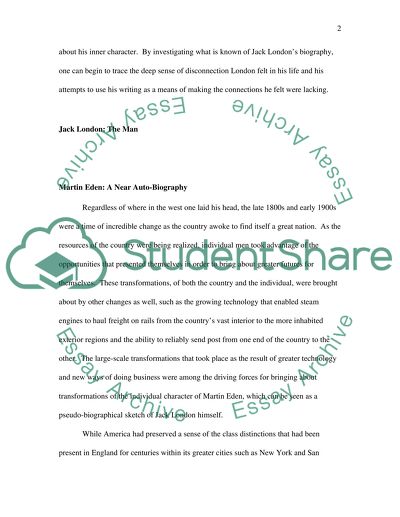Cite this document
(Jack London: Connecting through Disconnection Research Paper, n.d.)
Jack London: Connecting through Disconnection Research Paper. Retrieved from https://studentshare.org/literature/1559879-jack-london
Jack London: Connecting through Disconnection Research Paper. Retrieved from https://studentshare.org/literature/1559879-jack-london
(Jack London: Connecting through Disconnection Research Paper)
Jack London: Connecting through Disconnection Research Paper. https://studentshare.org/literature/1559879-jack-london.
Jack London: Connecting through Disconnection Research Paper. https://studentshare.org/literature/1559879-jack-london.
“Jack London: Connecting through Disconnection Research Paper”. https://studentshare.org/literature/1559879-jack-london.


